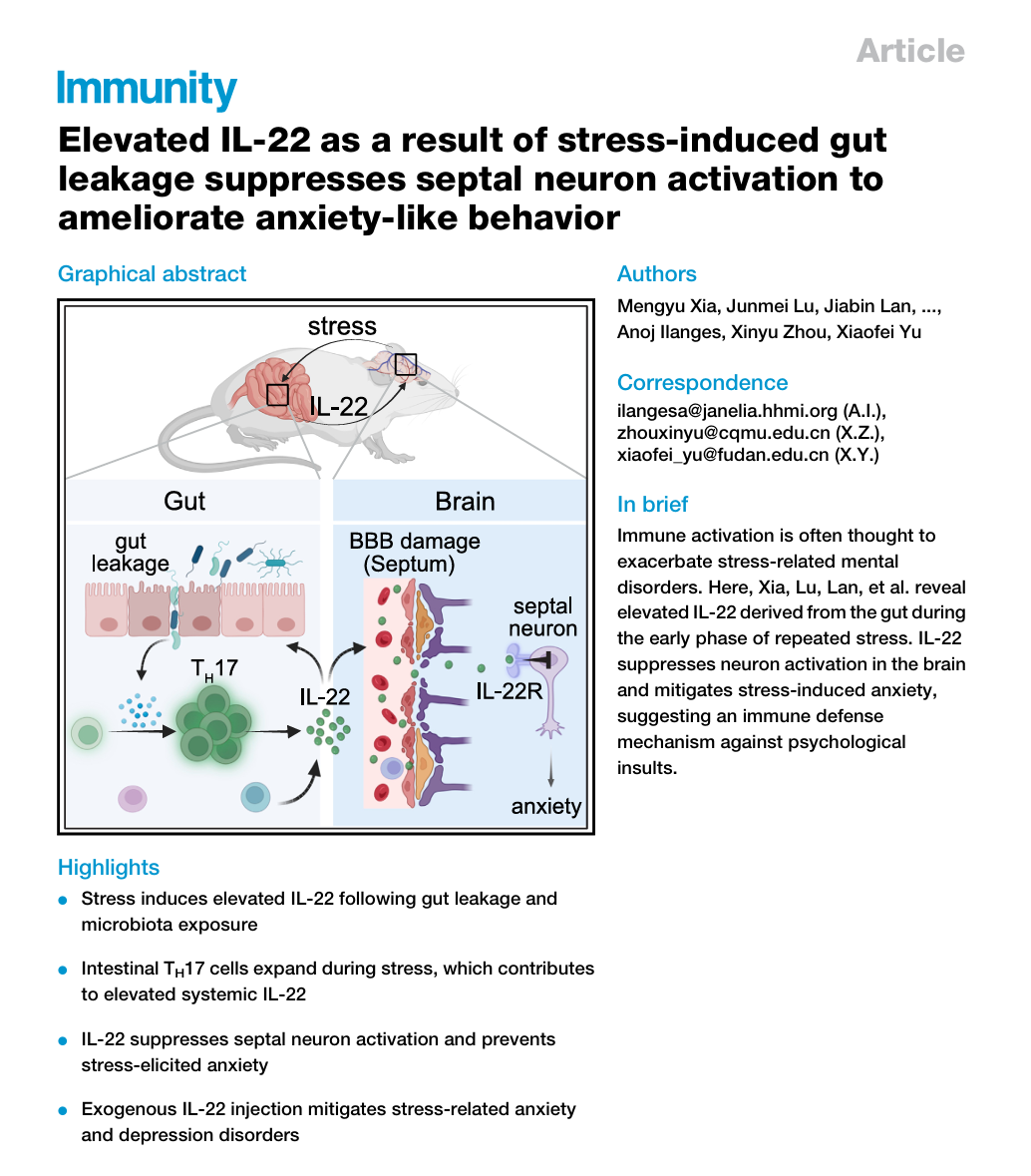





Gut sensing and remote control of body physiology
The intestine is essential to food digestion and nutrient absorption and is also home to trillions of resident microbiota. Therefore, the intestine has to sense the ever-changing environment in the intestinal lumen and respond by coordinating actions of numerous cell types, including immune cells. The coordinated response, though yet fully elucidated, has been found to underlie the normal physiology and disease pathology of the host.
Our research centers on two primary questions: 1) how the gut senses and responds to microbial and nutritional cues, and 2) how these responses regulate the physiology of the gut and distal (ex-intestinal) organs. So far, we have found that gut immune cells sense microbial exposure and produce the cytokine IL-22 during psychological stress, which suppresses brain neuron activity and mitigates stress-elicited behavioral disorders (Xia et al., Immunity, 2025). Additionally, we have also uncovered that gut enteroendocrine cells sense hydrogen sulfide produced by the obesity-associated gut microbe, Desulfovibrio spp., and reduce GLP-1 production to exacerbate diet-induced obesity (Qi et al., Nature Metabolism, 2024).
We have now extended our research to enteric neurons and are investigating how the gut immune, enteroendocrine and neural cells sense the gut environment and coordinatelly regulate the physiology of distal organs via secretory and neural signals.
